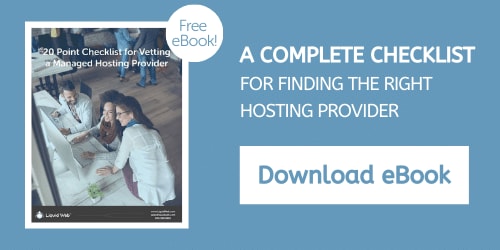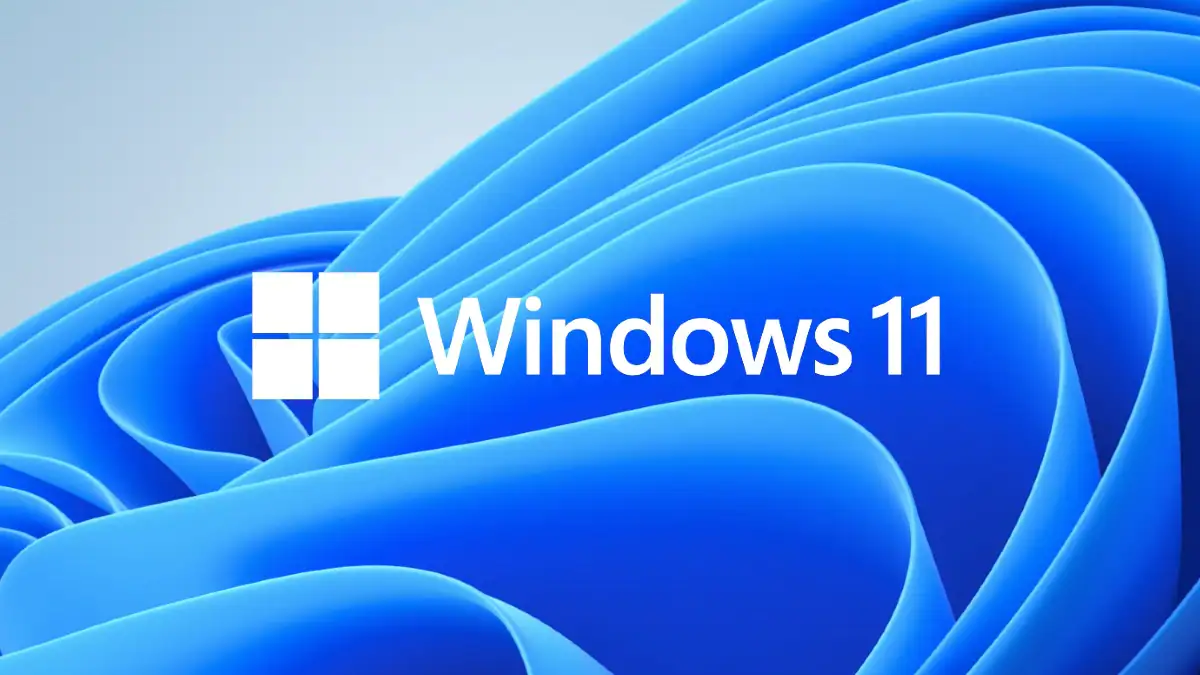
Let’s be clear, web hosting can be complicated for a business owner.
If you’re website is experiencing inferior performance, it can affect your profits, your credibility, and your brand. Your hosting provider can drastically impact your bottom line. So if you’re experiencing too many red flags, it’s probably time to find a new web hosting provider.
Typically, there are three basic types of hosted solutions:
- Dedicated Hosting, which is not just limited to physical dedicated servers, but denotes single-tenant hosting solutions. This can also include VPS Hosting and Cloud Dedicated solutions, as well. These solutions allow organizations to reduce the costs associated with site management. Physical Dedicated servers offer performance and the ability to handle large volumes of traffic. VPS and Cloud Dedicated hosting give the benefit of near-instant provisioning with the scalability of the cloud.
- Shared Hosting, which hosts several user accounts on a single server, typically with a shared IP address. It provides a low-cost solution for smaller companies with limited web traffic.
- Managed Applications, such as Managed WordPress and Managed WooCommerce Hosting, afford customers a WordPress environment without the need to administer their server. These types of platforms come with the tools developers need, so their focus remains on their sites.
Your specific needs and that of your clients will determine what the right fit is. It is also necessary to think about the future. Your business needs will change over time, and it is essential to be able to pivot.
So when will you know when it’s time to move on from your current hosting? We have 5 signs that indicate it’s time to find a new web hosting provider.
1. The Provider Can’t Handle Your Traffic
In June of 2019, what was supposed to be a routine configuration change for Google ended with outages to YouTube, Gmail, and Google Drive, among other third party services. Many servers’ network capacity was dropped by half, causing a build-up of traffic and network congestion.
It took over 3 hours for their staff to restore services in what was the second outage this year for Google, specifically for YouTube.
The above example may seem excessive. Still, it illustrates that traffic spikes and network congestion during maintenance can happen and will test the limits of your hosting and, ultimately, your provider.
Not all hosting providers are created equal.”
While no provider can guarantee your site will never go down, frequent outages due to traffic spikes are a warning sign. Either that solution or the provider simply isn’t ready for prime time.
In addition to avoiding or quick response to service interruptions, other features that you should look for include:
- 24/7/365 support
- Regular and automatic software and plugin updates
- Continuous server health and security monitoring
- On-server and remote backup options
- One-click installations of CMSs and other tools
If getting the performance you need is a constant battle, it may be time to look elsewhere. No provider is perfect, but traffic bottlenecks should not be regular, nor should downtime be constant. Please understand that things happen.
If your provider cannot provide you the assistance you need and keep you updated, it may be time to consider alternatives.

2. Your Information Isn’t Secure
Security is a source of continued frustration for organizations that handle sensitive data. Whether it is patient records, credit card data, or other consumer data, you need assurance that it is secure. The more you grow, the more essential this becomes, and picking a reliable hosted solution is of supreme importance.
So what is another way to determine if you have grown beyond your hosting provider?
You know this when an increasing number of security events are no longer few and far between.”
Hackers have several attack methods, particularly phishing and malware, among other techniques. The goal is any data they deem useful, and they will go through lengths to get it.
An excellent hosting provider should be able to offer you industry-leading security services. Some security mechanisms to look for are intrusion detection and prevention, industry-standard vulnerability scans, and protection against distributed denial of service (DDoS) attacks.
All this translates into greater security for you and your client’s data.
3. You’re Growing, But Your Hosting Provider Can’t
The ability to process information and access data is essential. The barrier to entry is when the means of efficiently doing this are not accessible. Poor performance and downtime mean you and your clients lose customers and conversions because they experience wait times and look elsewhere.
If your web hosting provider can’t grow with you, it will limit your business growth. A growing business necessitates a provider that can grow with their client’s (your) needs. Having the ability to scale simply cannot be understated.
You need to know that your web hosting provider is ready for the challenges of growth.”
Try asking yourself the following questions:
- What’s their ability to scale?
- Are they prepared to meet your specific needs?
- Do they offer custom solutions outside of standard hosting plans?
Your hosting provider must be able to accommodate your growth adequately. Don’t be afraid to ask questions and find out what steps can be taken should the need arise. The future of your business, or that of your clients, may depend on it.
4. Your Hosting Provider Just Doesn’t Support You
This can be a sensitive topic, as perception plays a large part. However, you need to be clear on the support and management offered by your hosting provider and whether or not it is adequate. You and your clients have real-time business needs. You need a provider that can support you right when you need it.
It goes without saying that the hosting space is filled with ever-evolving technologies, and it is challenging to support and manage them all. But on a basic level, your provider needs to be able to give you support for the environment that houses your projects.
If your impression is that they don’t comprehend your business needs and don’t care to, you know it’s time to consider a move on to a new web hosting provider.
5. Your Hosting Provider Isn’t Helpful
The reality of the hosting space is that technology is not 100% perfect. Components can fail, software services can need restarting, and servers can need rebooting. Not to mention other unforeseen factors that can come into play, all of which can cost you time and money.
As mentioned in point number four, the need for support from your provider is going to come. Whether that time is shortly after purchase or down the road, you will need them at some point. The fact that you need to contact them at all is not a reason to depart, having the kind of support that is not getting the job done is viable.
As a business owner, you need to assess whether the interactions you have company-wide are intending to give you the best possible experience. Much like life, everything may not go according to plan.
Ultimately, if the person on the other end of the chat, phone, or email ticket has exhausted all possibilities, then you have something to hold on to. If you don’t feel that is the case, it might be time to let go.
Does Your Host Provider Measure Up?
There are several takeaways that every organization should consider adopting as a policy. Here are some questions to ask regarding your web hosting provider:
- Does your provider give you the performance you need?
- Is my information secure?
- Can my provider accommodate my growth?
- Do they give me the kind of support I want?
- On the whole, are the interactions I have with my provider helpful?
Any relationship requires you to give and take. Your relationship with your hosting provider is no different. It is up to you to determine if what you are taking in exchange for what you are giving is worth it to you.
Get a Full Checklist for Vetting Your Next Managed Hosting Provider
[ad_2]
Source link







